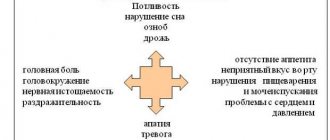Commentary on Article 23 of the Criminal Code of the Russian Federation
1. Investigative and judicial practice shows that more than half of the crimes registered in the country are committed under the influence of alcohol, drugs or other intoxication. At the same time, suspects, accused and defendants justify their criminal behavior by the fact that the crime was committed while intoxicated. Intoxication actually weakens a person’s ability to realize the actual nature and social danger of the actions (inactions) being performed or to control them. However, a person who is in a state of intoxication does not lose connection with the outside world, the ability to correctly reflect it in his mind, and, consequently, make decisions about the choice of behavior taking into account the current environment.
2. This explains what is in the comment. The article establishes a rule according to which a person who commits a crime while intoxicated due to the use of alcohol, drugs or other intoxicating substances is subject to a criminal offense.
3. Intoxication is understood as a state of euphoria (high spirits, contentment that does not correspond to objective conditions), caused by a person voluntarily or under duress using alcoholic beverages, narcotic drugs or psychotropic substances, other intoxicating substances (potent or toxic substances, inhaling gasoline vapors, etc.). ). This kind of intoxication is also called physiological. There are mild, moderate and deep (strong) intoxication. The degree of physiological intoxication at the time a person commits a crime is not taken into account when determining the grounds and limits of the criminal offense.
4. The so-called pathological intoxication, caused by the consumption of alcoholic beverages against the background of mental or physical fatigue of a person, should be distinguished from physiological intoxication. Pathological intoxication is a type of temporary mental disorder that entails declaring a person insane.
5. Committing a crime in a state of physiological intoxication cannot be taken into account as an aggravating circumstance. Involvement in the commission of a crime of persons who are in a state of intoxication is recognized as a circumstance aggravating the punishment of the perpetrator.
How is drunkenness taken into account when committing an offense (crime)?
Lawyer Antonov A.P.
Drinking alcohol in itself is legal, although it entails negative consequences both for the person himself and for his loved ones and others. Nevertheless, the legislation contains a number of prohibitions for persons who are intoxicated. These include driving vehicles, carrying bladed weapons and firearms (even with appropriate permission), appearing in government institutions and courts, as well as in any public place (on the streets, stadiums, squares, parks, in a public vehicle). The latter is qualified under Article 20.21 of the Code of Administrative Offenses of the Russian Federation, and most of the violations committed while intoxicated occur when driving a car. In all of the listed cases, the state of intoxication (no matter what caused it - the use of alcohol, narcotic drugs, psychotropic or toxic substances, etc.) is part of the offense or crime and is taken into account without fail. The source of intoxication does not matter.
The question arises of how the state of intoxication is taken into account in all other cases. There is an opinion among the population that the state of intoxication is a mitigating circumstance. This is usually justified by the fact that at the time the crime was committed the person could not control his actions, therefore, responsibility for them should be mitigated. However, this opinion is not true.
Based on Part 1.1 of Article 63 of the Criminal Code of the Russian Federation, the court, depending on the nature and degree of public danger of the crime, the circumstances of its commission and the identity of the perpetrator, may recognize the commission of a crime while intoxicated (alcohol, drugs, etc.) as an aggravating circumstance. The legislator’s logic is explained by the fact that a person, when consuming alcohol and other substances, must be aware of their consequences for the psyche. Therefore, it is considered that a person deliberately puts himself in a state that makes it easier to commit an illegal act or in which he cannot control himself.
The Supreme Court of the Russian Federation takes a different position. According to paragraph 31 of the Resolution of the Plenum of December 22, 2015 No. 58 “On the practice of imposing criminal punishment by the courts of the Russian Federation,” the mere commission of a crime while intoxicated is not a basis for recognizing such a state as an aggravating circumstance. The descriptive and motivational part of the sentence must indicate the reasons why the court came to the conclusion that it was necessary to recognize the specified condition of the person at the time of the commission of the crime as an aggravating circumstance.
The issue is resolved in the same way when an administrative offense is committed. According to clause 6, part 1, article 4.3 of the Code of Administrative Offenses of the Russian Federation, committing an administrative offense while intoxicated or refusing to undergo a medical examination for intoxication if there are sufficient grounds to believe that the person who committed the administrative offense is intoxicated is an aggravating circumstance. However, despite this requirement of the law, the court is obliged to justify the recognition of this circumstance as aggravating.
In conclusion, it is worth mentioning how the state of intoxication affects civil legal relations. As a general rule, this condition, even with chronic alcoholism, does not in any way affect the legal capacity of a citizen until it is limited by the court at the request of the relatives of this person. In addition, the state of intoxication is grounds for invalidating a will (appeal ruling of the Samara Regional Court dated January 25, 2018 No. 33-727/2018) or an agreement (appeal ruling of the Samara Regional Court dated August 28, 2019 No. 33-10060/2019).
Sincerely, lawyer Anatoly Antonov, managing partner of the law firm Antonov and Partners.
Still have questions for your lawyer? Ask them right now here, or call us by phone in Moscow +7 (499) 288-34-32 or in Samara +7 (846) 212-99-71 (24 hours a day), or come to our office for a consultation (by pre-registration)!
Another comment on Art. 23 of the Criminal Code of the Russian Federation
1. The Criminal Code of the Russian Federation does not exclude criminal liability of persons who committed a crime while intoxicated due to the use of alcohol, narcotic and psychotropic drugs, and intoxicants. This rule does not apply to cases of committing a socially dangerous act in a state of pathological intoxication and withdrawal (“narcotic starvation”), which refer to temporary mental disorders that do not allow persons suffering from them to realize the actual nature and social danger of their actions (inaction) or to direct them.
2. In some cases, ordinary (simple) intoxication can aggravate a person’s existing mental disorders. If the mental health of a person who has committed a crime in a state of ordinary intoxication is in doubt, a comprehensive forensic psychological and psychiatric examination is necessary.
3. The commission of a crime by a person while intoxicated cannot be taken into account by the court as an aggravating circumstance. At the same time, in Art. 264 of the Criminal Code of the Russian Federation, the state of intoxication acts as a qualifying element of the crime.
Criminal liability of persons who committed a crime while intoxicated
According to Article 23 of the Criminal Code of the Russian Federation, a person who commits a crime while intoxicated due to the use of alcohol, narcotic drugs, psychotropic substances or their analogues, new potentially dangerous psychotropic substances or other intoxicating substances is subject to criminal liability.
Being in a state of alcohol or drug intoxication at the time of committing a crime is not a basis for exemption from criminal liability and punishment, declaring a citizen insane, and is not a mitigating circumstance.
When imposing a sentence, the Court has the right to recognize the presence of the accused in a state of alcohol or drug intoxication at the time of the commission of the crime as an aggravating circumstance in accordance with Part 1.1 of Article 63 of the Criminal Code of the Russian Federation
A number of articles of the Criminal Code of the Russian Federation provide for criminal liability for committing crimes while intoxicated.
The most striking example is Article 264.1 of the Criminal Code of the Russian Federation, which provides for criminal liability against a person driving a vehicle while intoxicated, who was previously subject to administrative punishment for driving a vehicle while intoxicated. For committing these actions, penalties are provided up to imprisonment for up to 2 years with deprivation of the right to hold certain positions or engage in certain activities for up to three years.
Furthermore, in accordance with Art. 4.6 of the Code of the Russian Federation on Administrative Offenses, a person who has been assigned an administrative penalty for committing an administrative offense is considered subject to this punishment from the date the resolution imposing an administrative penalty enters into legal force until the expiration of one year from the date of completion of the execution of this resolution.
In Art.
264 of the Criminal Code of the Russian Federation, committing a crime while intoxicated is a qualifying feature and is classified as a more serious crime. Thus, in cases of violation of traffic rules by a person who was in a state of intoxication, which led to the death of a person, he is subject to criminal liability under Part 4 of Article 264 of the Criminal Code of the Russian Federation. In this case, the person will face punishment in the form of imprisonment for a term of 2 to 7 years with deprivation of the right to hold certain positions or engage in certain activities for a term of up to three years. Back to section
Intoxication and punishment
When resolving the issue of the possibility of recognizing the specified state of a person at the time of commission of a crime as an aggravating circumstance, courts take into account the nature and degree of social danger of the crime, the circumstances of its commission, the influence of the state of intoxication on the person’s behavior when committing a crime, as well as the identity of the perpetrator.
“If the court, having assessed the evidence presented, considers it necessary to recognize the commission of a crime while intoxicated as an aggravating circumstance, it must indicate in the verdict the reasons for making such a decision,” says criminal lawyer Viktor Ikryannikov.
Recognition by the court of this aggravating circumstance can significantly affect the punishment. Based on Article 56 of the Criminal Code of the Russian Federation, the presence of an aggravating circumstance will allow a sentence of imprisonment to be imposed on a convicted person who has committed a crime of minor gravity for the first time.
“Previously, intoxication was a circumstance mitigating punishment. One of the stories that glorified the lawyer and later revolutionary Vladimir Ulyanov was the criminal case against the peasant Vasily Mulenkov, who was accused of blasphemy. The crime in the Russian Empire was more than serious, implying a real prison term. According to the prosecution, the defendant drunkenly entered a grocery store and, in front of witnesses, “cursed God, the Most Holy Theotokos and the Most Holy Trinity.” Mulenkov said that the emperor does not know how and should not rule the country. Taken together, these offenses were punishable by 15 years of hard labor. Ulyanov called on the court to take into account the fact that the defendant’s life was full of hardships and, in order to forget, he drank too much, and this provoked him to make daring speeches. The accused received only a year in prison,” says criminal lawyer Viktor Ikryannikov.
The day before, the Moscow Regional Court commuted the sentence of a man who was convicted of a crime committed while drunk. The main reason is that alcoholic brain fog had no effect on the crime. The man was cooking drugs and would have done it anyway, even if he was of sober mind and clear memory. The example makes it clear what criteria courts should use when deciding whether or not to add punishment to a drunken criminal.
“In this case, a resident of the Moscow region got involved with a bad company that produced drugs. After law enforcement officers found the young people, he actively helped the investigation. The court took this into account and imposed a sentence of eight years in prison. Moreover, the court recognized the commission of a crime in a state of intoxication caused by the use of narcotic drugs and psychotropic substances as an aggravating circumstance. However, the court did not provide any data indicating that the state of intoxication contributed to the commission of the crime, and did not motivate the conclusions about recognizing this circumstance as an aggravating punishment, so the punishment was commuted,” explained criminal lawyer Viktor Ikryannikov.
Features of initiating criminal cases for crimes against the interests of private organizations
Lawyer Antonov A.P.
The Criminal Code of the Russian Federation has a separate Chapter 23, which contains all crimes against the interests of the service in commercial and other organizations. Among them are abuse of power (Article 210 of the Criminal Code of the Russian Federation), commercial bribery (Article 204 of the Criminal Code of the Russian Federation), mediation in commercial bribery (Article 204.1 of the Criminal Code of the Russian Federation). As you can see, these crimes are similar to abuse of power (Article 286 of the Criminal Code of the Russian Federation), giving and receiving a bribe, as well as mediation in bribery (290-291.1 of the Criminal Code of the Russian Federation). The difference between these acts lies in the subject: in the case of commercial bribery, this is a person performing managerial functions in a commercial or other organization, and in the case of receiving a bribe, this is an official who has organizational, administrative or administrative functions in a state or municipal body or institution.
However, the main difference is the object of the crime. In the first case, these are normal managerial relations in the state, in the second - relations within or between legal entities. From the point of view of the legislator, such actions are more dangerous when they are committed in government bodies. This also explains the peculiarities of initiating criminal cases for crimes provided for in Chapter 23 of the Criminal Code of the Russian Federation. By virtue of Article 23 of the Criminal Code of the Russian Federation, if such an act caused harm to the interests of an exclusively commercial or other organization that is not a state or municipal enterprise or an organization with participation in the authorized (share) capital (share fund) of the state or municipal entity, and did not cause harm to the interests other organizations, as well as the interests of citizens, society or the state, then a criminal case is initiated upon the application of the head of this organization or with his consent.
In practice, certain difficulties arise when applying this rule. Firstly, the wording: “at the request of the head of a given organization or with his consent” is not entirely understood. If we literally interpret the provisions of the law, then the head of the organization may not submit a corresponding application, however, the investigator, having data indicating the existence of grounds for initiating a criminal case, may invite him to give consent to this.
In this case, the head of an organization can be understood not only as the general director directly, but also as the head of a department. If the crime is committed by the head of the organization, then a criminal case is initiated upon the application or with the consent of the person who takes part in the election of the leader. This provision is often violated. Thus, a criminal case can be initiated on the basis of a report from an operational officer without the consent of persons who are authorized to elect the head of the organization, which is illegal (appeal resolution of the Saratov Regional Court dated April 24, 2019 based on material No. 22-1179/2019). It is also illegal to initiate a criminal case based on a statement from the head of a branch of an organization (resolution of the Kirovsky District Court of Saratov dated May 29, 2019, based on material No. 3/12–77//2019).
However, the fairness of the provision is that criminal cases for such crimes should be initiated only on the basis of a statement from the manager or with his consent. Any organization pays established taxes and fees, therefore, violations in the work of the organization and losses incurred in connection with this entail a reduction in mandatory payments, therefore, public interests are violated.
Sincerely, lawyer Anatoly Antonov, managing partner of the law firm Antonov and Partners.




